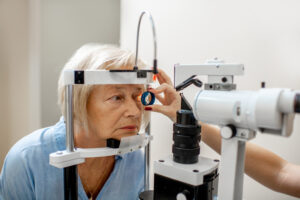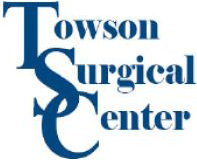Preserve Your Healthy Vision During Glaucoma Awareness Month

About 60 million people worldwide have glaucoma, and about three million Americans are affected by the disease. In the United States, January is Glaucoma Awareness Month, an important time to educate ourselves about this progressive eye disease. Yearly comprehensive eye exams are essential for diagnosing glaucoma early and preventing vision loss.
How Does Glaucoma Affect My Vision?
Glaucoma is a family of eye diseases characterized by elevated levels of intraocular pressure (IOP). Elevated eye pressure can damage the optic nerve, which sends visual signals to the brain.
Because it can develop without symptoms or pain, glaucoma is often called “the sneak thief of sight.” At first, glaucoma affects the peripheral vision, but most people do not notice the narrowing of their visual field. Unfortunately, vision loss from glaucoma is permanent, and there is no cure for the disease.
Glaucoma Treatments Can Prevent Further Vision Loss
Although there is no way to restore glaucoma-related vision loss, several treatments can help lower IOP to safer levels. These may include eye drops, which can decrease fluid production in the eye or increase fluid outflow. Other options include oral medication, laser therapy and surgical procedures.
Who Is at Risk for Developing Glaucoma?
Anyone can develop glaucoma, but certain people have a higher risk. You have a higher chance of developing glaucoma if you …
- Are older than 60.
- Have relatives with glaucoma.
- Are of Hispanic, African or Asian descent. Glaucoma is six to eight times more common in African Americans than Caucasians.
- Have high eye pressure.
- Are very nearsighted or farsighted.
- Have had an eye injury.
- Have a thin cornea.
- Take steroid medications.
Will My Ophthalmologist Test Me for Glaucoma?
Your ophthalmologist can test you for glaucoma at your next comprehensive eye exam. Your doctor will dilate your eyes and perform a series of tests to evaluate you for glaucoma, cataracts, macular degeneration and other eye conditions. A comprehensive eye exam is painless and simple, and most exams take less than one hour.
According to the National Eye Institute, …
- Glaucoma can happen in one eye or both eyes.
- Some people with high eye pressure don’t get glaucoma, and there’s a type of glaucoma that happens in people with normal eye pressure.
- Normal eye pressure varies by person, so what’s normal for one person could be high for another.
Find an Ophthalmologist in Your Area
Make good vision a priority and begin your year with a comprehensive eye exam. Regular visits to your eye doctor can help preserve your vision for years to come. Celebrate Glaucoma Awareness Month by calling to make an appointment. If you are not under the care of a board-certified ophthalmologist, we can help you find a physician in your area.
